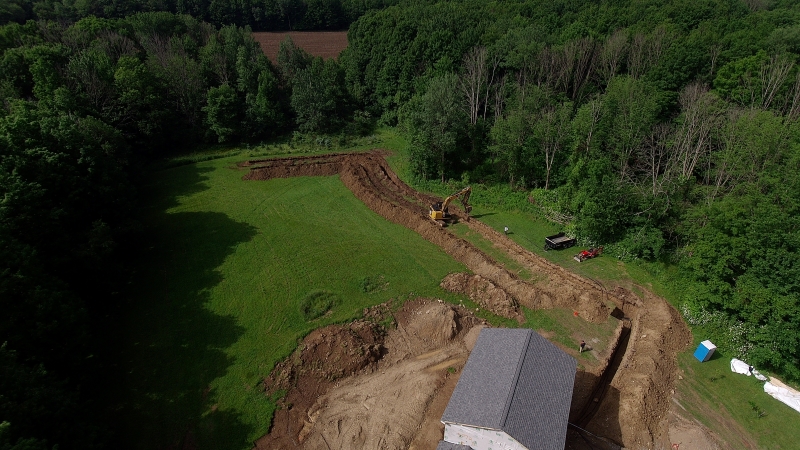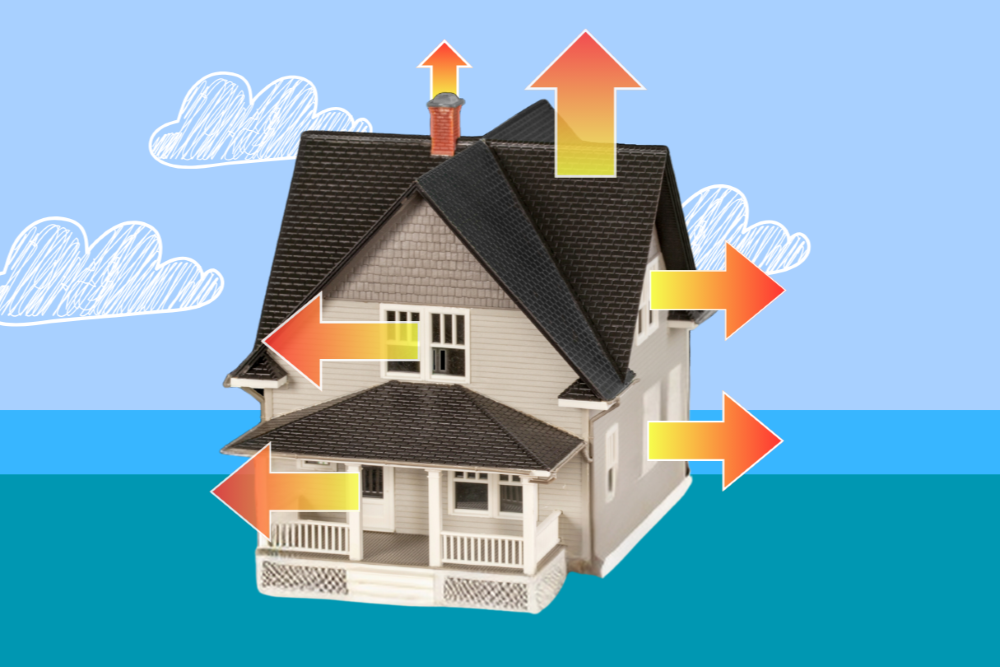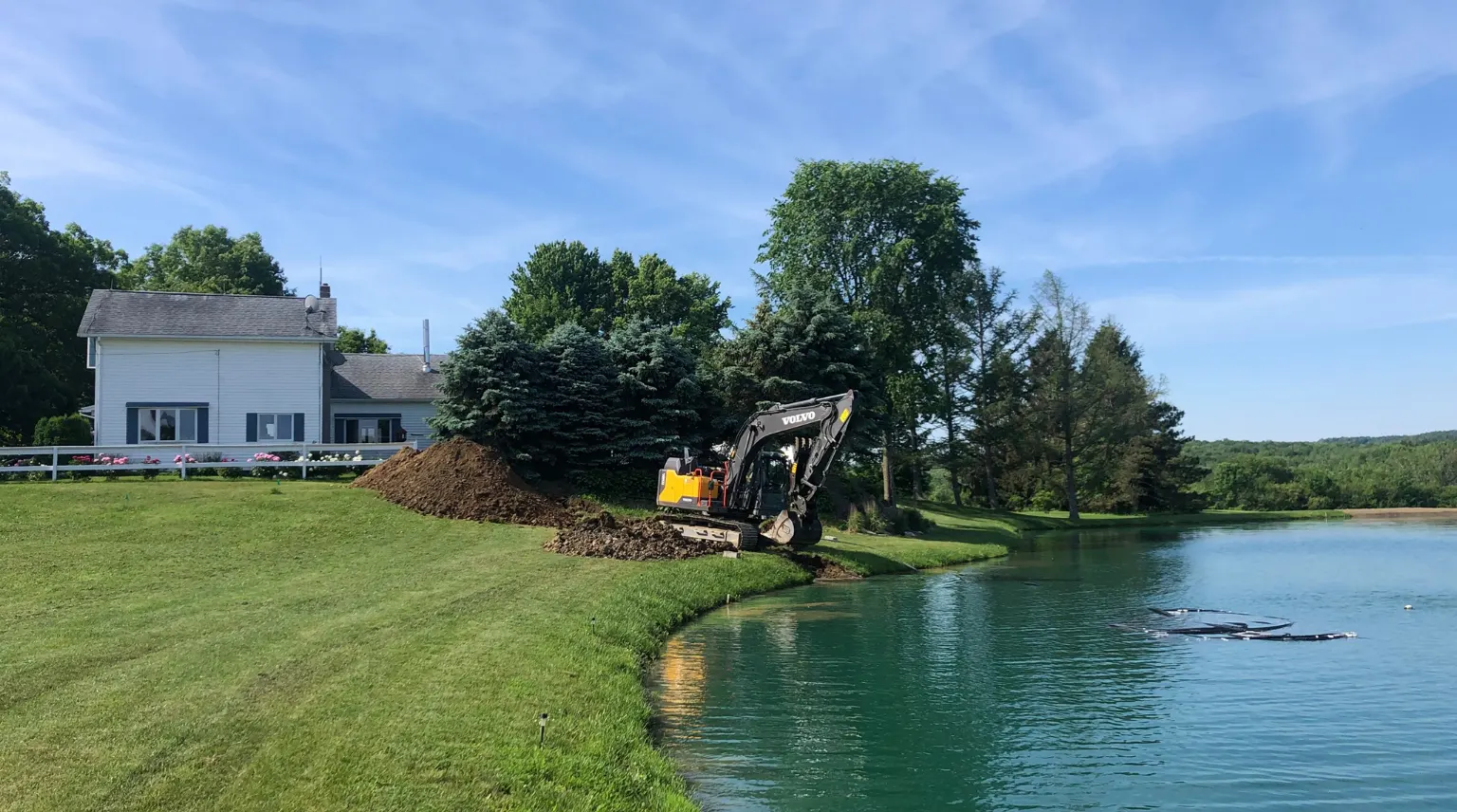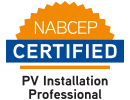Geothermal systems are definitely the top heating and cooling option available, but what type of geo is best for you? There are a few types of geothermal systems available, and it is worth considering which one fits your needs. The main differences between the types of geothermal systems is related to the number of stages available. There is single-stage, dual-stage and variable speed equipment available today. The best one for your home depends on a few factors to consider. Budget, comfort, warranties and operating cost are important items to understand when choosing which type of geothermal system is right for you.
First let’s look at how each system type operates and what that means:

Single-stage
A single-stage geothermal system, like the name suggests, has one speed and is either on at full capacity or completely shut down. Imagine you’re driving your car and you either push the gas pedal to the floor or not at all. There is no “in between” and the system is either on or off. A good design that utilizes a single stage heat pump will make sure that the full capacity of the system matches the load of the area being served a majority of the time, so the system can continuously operate more often. You want to avoid any type of heating or cooling equipment turning on and off repeatedly. This causes additional wear on components and creates the highest operating costs.
Single-stage is often the lower cost option and using multiple can be good for a home with many temperature zones. Smaller single-stage units can work together to cover a large space with a lot of temperature control.
A single-stage system is not appropriate as the only heating/cooling source for most homes in the Northeast because they are too powerful when cooling for proper humidity removal. Basically, the system doesn’t run long enough to get the moisture out of the air before cooling the space, making you feel cold and clammy. If the system was able to run longer at a lower stage, moisture in the air could be removed for crisper air and much better comfort through the cooling season. This is why it is critical to size the single stage equipment so that it can run often and minimize turning on and off.
Dual-stage
Dual stage geothermal systems are the most popular type and a great option for all homes. The nice price point and ability to adjust output stages make this the top value choice. Operating efficiency is increased with the dual-stage operation from longer run times in the lower stage. This extra efficiency means that the operating cost is lowered and the system will use less electricity each year. In addition, this system will properly cool your home using the lower stage to remove humidity in the summer. A variable speed fan is used to adjust the blower speed to match the air needed for each stage. This type of geothermal system comes in a wide range of configurations and sizes, creating excellent design flexibility for all spaces.
Variable Speed
The most advanced type of geothermal system with variable speed technology is often the best option. Variable speed systems are the lowest cost to operate as they adjust output to match the home’s demand using 12 stages. They are also able to integrate with a wider range of ductwork for retrofits, harnessing the ability to adjust to the existing ductwork limitations to a greater degree. Variable speed operation also provides the most even temperatures for the home. With extended run times at lower stages, the air is kept more stable than with any other type, while the lower stages use the least amount of energy. Variable speed systems are the most efficient and advanced heating and cooling systems on the planet.
So Which Geothermal System is Best for You?
Let’s look at the main factors and how they apply to each type of system.
Budget
Perhaps you’re the type of homeowner that is just sick and tired of high energy costs, ready to get rid of their fossil fuel system, but don’t need all the bells and whistles. The dual stage system is often the right match for this type of homeowner. The value buyer often goes with the dual stage system, upgraded with the modern monitoring and controls packages, but still taking advantage of the lower upfront system cost.
Variable speed systems have the most advanced technology for a slightly higher equipment cost, but offer the lowest operating costs. Some homeowners appreciate having the best of what’s available and seek the lowest operating cost as a long-term investment. Engineers and tech savvy homeowners love having such a sophisticated geothermal system with the highest efficiency possible today.
How the space is used could determine the budget and lead toward a certain system type. For example, if this is your primary home and you plan to stay there for many years, a premier variable speed geothermal system could be a perfect fit to match a long-term strategy. A rental or secondary home may make a simpler, more basic system the best match.
One great thing about a geothermal system is that the ground loop is a permanent part of your heating and cooling system even if you decide to upgrade your inside equipment later.
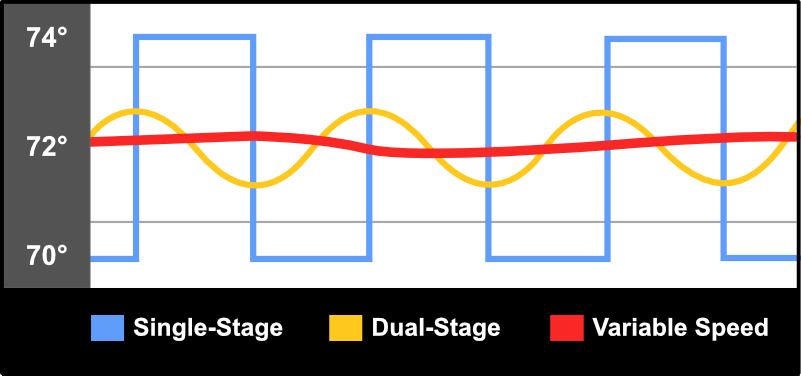
Comfort
Your body perceives even slight temperature changes, but with consistent, even, temperatures, you can relax without disturbance. Being healthy and comfortable in your home is also determined by the humidity of the air. Too much or too little humidity can be irritating and uncomfortable. The air is most healthy for our bodies with humidity between 30 – 60%. Dry air in the winter can severely affect your skin, lungs and sinuses, in addition to giving you that electrifying jolt we all hate when you touch another object. Excessive humidity in the summer or rainy seasons promotes airborne pathogens and sometimes feels terrible.
Variable speed systems are the clear winner for maintaining a consistent and healthy humidity level in the home. Since the equipment is operating at low speeds with long run times, the air can be filtered, measured and controlled with the most precision. The temperature in the home is more stable with variable speed operation. These systems also have the option for whole house de-humidification year-round for the ultimate in humidity control.
Operating Cost
Operating cost is another major factor to consider when choosing your type of geo. The geothermal system with the lowest operating cost is always going to be the variable speed design. This is because it can run at lower speeds more often, requiring the least amount of electricity to operate. Dual-stage systems are the next most efficient option with two operating speeds. Often considered the “value buy” because the difference in the cost to operate each year may be minimal. Single-stage systems have the highest operating costs for larger areas, however, they may be the best choice and the most appropriate when using several geothermal systems for small zones. A geothermal model from your installer can demonstrate the operating cost differences between the system types. This is important to weigh the operating cost savings versus the upfront system cost.
Warranties and Guarantees
The systems with the with the most advanced technology can be the most expensive to repair due to the complexity involved. The advantage of this type of platform is the access to extensive data on the system for performance monitoring that can speed up any diagnosis. Variable speed systems currently come with a 10-year parts warranty and a 5-year labor warranty.
The systems with the longest guarantees available are dual stage systems. Some manufacturers offer up to an 18-year warranty for certified installers on both the compressor and the heat exchanger. This is equivalent to the engine and transmission of your vehicle. These more simple systems have less failure modes and less costly repairs if something goes wrong.
At the other end of the spectrum are the bare bones geothermal designs often used for commercial projects. These systems are very basic and eliminate the monitoring plus additional features that are not necessary for operation. They often come with reduced warranty periods but are by far the lowest cost option. Apartments, workshops and barns are also great for these systems.
So, What is the Right Choice?
This is a personal decision and comes down to individual priorities. A good geothermal installer will be able to guide you through the process, discuss what is important to you, and review the different options for your home. They will be able to model available system types, so you have all the information to make an informed decision. Geothermal is great for every home, the environment and your wallet. Find a certified geothermal installer and get started right away!
